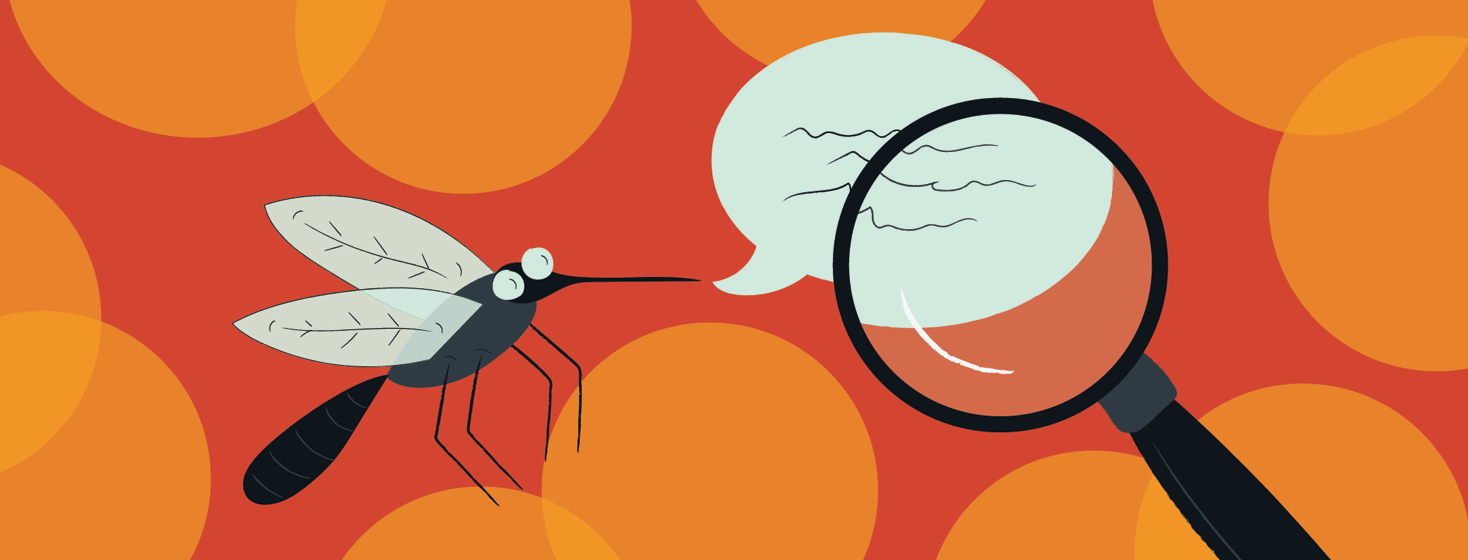Narcolepsy and 'Mosquitos' Part 2: Everyday Phrases That Can Feel Like Microaggressions
In part one of this series, I looked into microaggressions and the things that people commonly say to me regarding my narcolepsy that can have an ableist sting to them.
The English language is full of idioms and metaphors that have become ingrained into our everyday speech. Sleepiness = laziness is one of the common metaphors, along with others. It's important to note that, of course, we might have used these phrases ourselves and not have any ill intent in the use of them.
A closer look at language
In highlighting them, though, my intent is to start a conversation and look at ways that language can sometimes perpetuate harmful stereotypes, even if that's not the intended meaning.
Let's take a look at some common phrases that in themselves can feel like microaggressions or "mosquito bites" if you have narcolepsy, even when not directed at us.
Common phrases that can feel like microaggressions
Don’t waste your time, or time will waste you.
This can make me reflect on time I have "wasted" and leave me frantic about missing out on life, even though it’s not my fault and I am not really wasting time when my body needs sleep.
I’ll sleep when I’m dead.
Again, this makes me feel that by sleeping, I am choosing not to live my life fully. (On top of that, it’s really not living life for anyone to be sleep deprived!)
Wake up!
Meaning, get savvy: This one equates sleepiness with being ignorant. Alternatives: "realise," "understand," "get savvy."
Asleep on the job.
Meaning incompetent and irresponsible: This equates sleepiness with carelessness/incompetency. Sleepiness is not laziness! Alternatives: "distracted," "not paying attention," etc.
Welfare/benefits fraud
Even when not targeted at me, I feel this one in the gut. It’s so difficult to live with a society that often doubts whether you have anything wrong with you and would sometimes rather believe you have character flaws than believe you have a disability. When people assume that people are just being lazy and are not really sick or really struggling to find work when they claim welfare, they perpetuate this really harmful narrative that disabled people are making up their illness. It is our right to get support when we are struggling (disabled or not, for that matter), and the rates of people making "fraudulent" claims are incredibly low in any case!1
What did you do today?
This is a phrase that is so ingrained it can just slide off the tongue. The reason why I included it in this list is it assumes I had time to do something before meeting the person. It always feels awkward when I say nothing (because meeting them was my big spoon use of that day), and they often tell me about the many things they did (often doing more than me on top of working a full shift). It draws my attention to the fact I can’t do as much as I would like to in a day. Alternatives: "Anything new?" "Do/read anything interesting the past few weeks?"
Getting up after midday means you've missed half of the day!
This one can feel like a real dig since I often struggle to get up in the morning, and I know I am not alone in this as a person with narcolepsy! Not being a morning person doesn't mean you are lesser, and it's not a choice when you have an illness that causes excessive daytime sleepiness. So many of us with narcolepsy are night owls in that we seem to have more concentration and energy in the later hours of the day.
When people are late, it shows they just don’t care about my time.
This one really gets me because I am not always able to be on time for things or be dependable. Sometimes I oversleep or have a sleep attack before meeting people, or I may need to cancel something altogether because I am too sleepy all of a sudden. It doesn’t mean that I am less respectful of people’s time, and being reliable is something I try my best to do, but I really cannot plan things in the same way most people can. I could put all precautions in place and still end up falling asleep or oversleeping.
How do you feel about these phrases? Strike a nerve, or do you not really notice? Do you think we should revise the way we talk about sleep in everyday language? I would love to hear your perspective!

Join the conversation